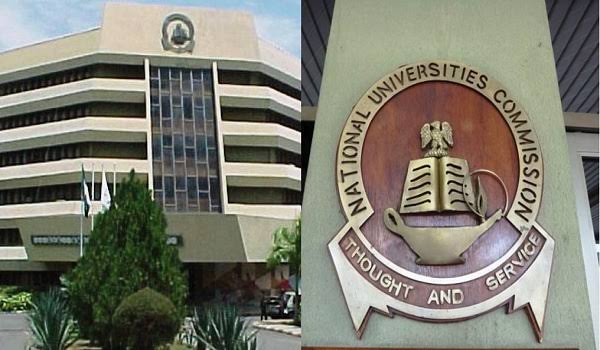The National Universities Commission (NUC) gave Nigerian universities new versions of their core technology classes.
During a recent meeting with stakeholders, Dr. Chris Maiyaki, the acting executive secretary of the commission, stated that the new curriculum would be used starting in September 2023.
Maiyaki said that the new curriculum called the Core Curriculum Minimum Academic Standards (CCMAS), will make up 70% of the curriculum. The colleges will decide on the remaining 30%. He thinks that this implementation will have a significant impact on the future of schooling.
The National Universities Commission added classes like cybersecurity, data science, information and communication technology, computer science, information systems, and software engineering to the universities in Nigeria.
Read also: NBTE launches online HND conversion to BSc
Tech courses in Nigerian universities
The Federal Government, through the National Universities Commission (NUC), introduced cybersecurity, data science, ICT, information systems, and software engineering into Nigerian universities for several reasons:
Technological Changes: Because technology is changing so quickly around the world, there is a rising need for experts in cybersecurity, data science, ICT, and software engineering. The challenges and opportunities of the digital age depend on these areas.
Business demand: The IT business is growing, and banks, hospitals, phone companies, and the government need skilled workers. The new programme meets the needs of the business world.
Economic Growth: A focus on technology-related disciplines can contribute to economic growth by fostering innovation, entrepreneurship, and the development of technology-based startups. This can boost economic growth and employment.
Global Competitiveness: As the world becomes increasingly interconnected, nations strive to remain competitive in the global economy. Nigerian universities can generate globally competitive graduates and boost the country’s technological presence by offering cutting-edge technology programmes.
Cybersecurity: Cyberattacks are increasing, requiring cybersecurity experts to secure critical infrastructure, government systems, and private data. Introduce cybersecurity programmes to solve security issues.
Decisions that are based on data: Data science and analytics help businesses make intelligent choices. These courses teach students to look at and make sense of vast amounts of data.
ICT Infrastructure Development: Like many other countries, Nigeria is putting money into the infrastructure for information and communication technology. A skilled workforce in ICT-related areas can help this infrastructure grow and stay in good shape.
Global Knowledge Exchange: Nigerian universities can work with other universities to offer programmes that meet foreign standards and trends.
Adding technology to your life can help you be more productive, learn more, and meet with more people. It can also open up opportunities and improve many parts of your life.
As a result, the new courses reflect an awareness of how technology is evolving and the need to equip Nigerian graduates with the abilities and knowledge necessary to prosper in a technologically driven world, spur economic growth, enhance cybersecurity, and maintain competitiveness on a global scale.




